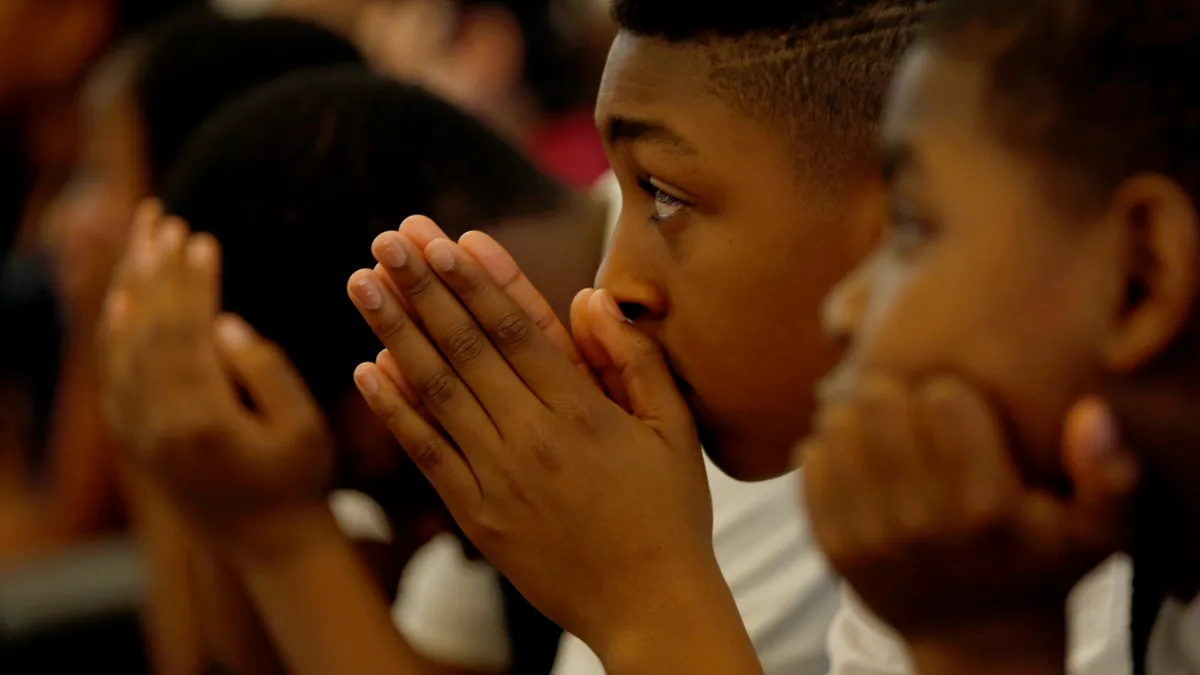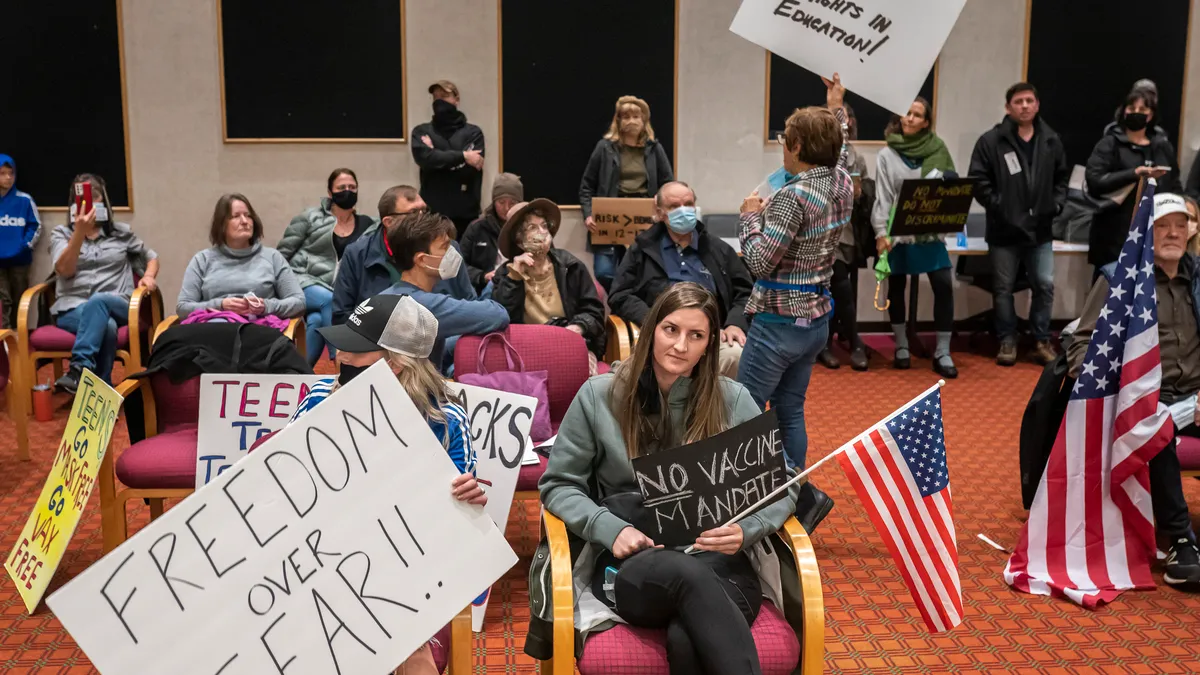Dive Brief:
- A new study from the United Negro College Fund’s Frederick D. Patterson Research Institute assessed the potential of community members to help close the gaps between schools and families and boost educational outcomes for students of color.
- The study finds education is considered a more pressing issue in the African American community that other social issues such as crime, healthcare, and housing. Fewer than one in four believe the public school systems are doing a good job preparing students for success in college.
- Resource equity, teacher quality, access to early childhood education and parent engagement were listed as the top areas of concern of respondents.
Dive Insight:
Ensuring students perform at grade level and graduate ready to succeed in college is a significant factor in competing globally and earning a comparable salary, all key for social mobility. Schools serving low-income and/or minority neighborhoods frequently do not adequately prepare students for college. And cities and states with a large minority population have robust education reform movements, which often exclude the intended beneficiaries from the conversation about what’s best.
The new UNCF study proposes engaging community leaders to address education reform issues and help bridge the family engagement gap, as they often have strong ties to their communities and are frequently viewed as a voice for their problems and concerns. This mirrors the strategies called for by Chris Emdin,an associate professor at Teachers College, Columbia University, who is touring the country advocating an engagement strategy that includes visiting students’ churches, neighborhood barbershops and other places of familiarity -- not only to reach out to those students, but to learn more about who they are and where they come from. This approach, argues Emdin, is key to helping school officials address their own biases which may impact their ability to effectively teach students of color.






 Dive Awards
Dive Awards




